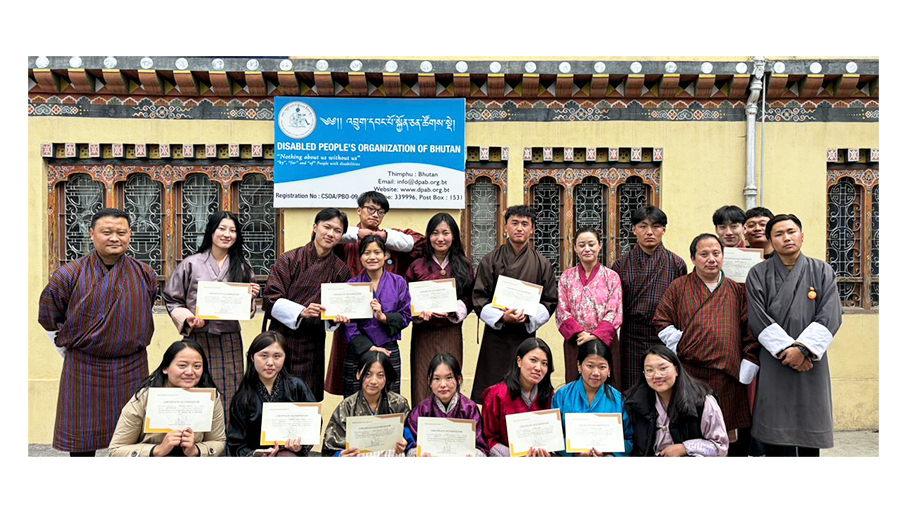
In a bid to enhance inclusivity and foster effective communication, the Disabled People’s Organisation conducted a week-long Bhutanese sign language course, recently. The trial programme saw 15 participants, including recent class 12 graduates and college students, who dedicated themselves to learning the Bhutanese sign language.

The primary aim of the course was to foster inclusivity, embrace diversity, and facilitate better communication with individuals who are deaf or hard of hearing.
The participants engaged in a comprehensive curriculum designed to equip them with the necessary skills to bridge communication gaps and create a more inclusive society.
“Before this, we had sign language courses conducted for our staff members. But this is the first of its kind course that we are catering outside our office. So, this will catalyse a lot of programmes we will design in the future,” said Tharpa Dema, programme officer of the Disabled People’s Organisation.
The course was facilitated by experienced instructors who guided the participants through various aspects of Bhutanese sign language.
“It is very difficult for deaf people to communicate with other people in society, and accessibility is an issue. So, when we taught the Bhutanese sign language to the young people, they could learn and I felt really good to see them interact in sign language,” said Dorji Dema, the instructor.
The young participants shared their thoughts on the sign language course.
“I was interested ever since the BhSL app came out. At first, I could not use the app properly since it was all words. I wanted to form coherent sentences with it as I am a youth advocate. So, with this knowledge, I was hoping that if I ever meet a person with hearing difficulty, I can communicate with them regarding the subject matter I advocate on,” said Tshering Phuntsho, a participant.
“I found that this course was done by the Disabled People’s Organisation, and my mother is also disabled. I thought I could learn not only sign language but learn more, like how I can deal with people with disabilities. And I am glad I learned more than that,” said Jangchuck Dorji, another participant.
Others said such courses can play a pivotal role in decision-making related to people with disabilities.
“In the decision-making process, a person who is visually impaired or has a hearing impairment, and if their opinions are taken into decision-making matters, I feel it will be more effective than us, with no impairments,” said Jangchuck Dorji, also a participant.
After a good turnout in their trial course, the Disabled People’s Organisation says that similar courses will be offered to interested individuals in the future.
Karma Samten Wangda
Edited by Sherub Dorji









